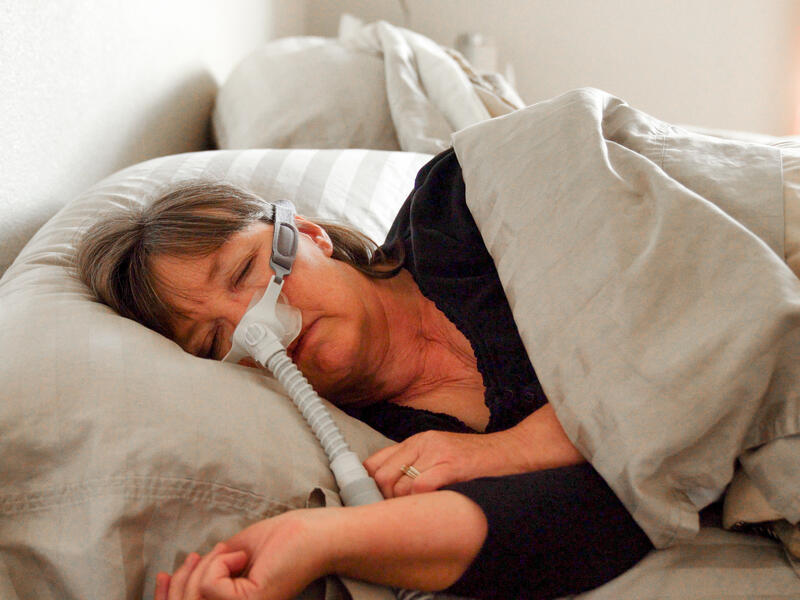When it comes to our overall health, sleep plays a crucial part.
When we don’t get enough, it can wreak havoc.
Ever had that sluggish next day feeling after a long night of Netflix-binging? It’s awful. It’s hard to concentrate, you may feel more irritable, you might have cravings for unhealthy foods, the list goes on and on.
But, for many, a poor night of sleep isn’t attributed to too much Netflix. Sleep apnea affects nearly 940 million people worldwide, and can be severe, says Erin Haustveit, a registered respiratory therapist at Sanford Health in Fargo, North Dakota.
Little to no airflow
Haustveit said sleep apnea blocks the airflow when someone is sleeping. “Some may have it hundreds of times a night,” she said.
“The bigger picture of all of it is that patients can still feel extremely tired, and have extreme issues, no matter the severity level of their sleep apnea,” she added.
So, what are the effects? Haustveit said there’s both short-term and long-term effects.
Related: New to CPAP? Tips on getting used to sleep apnea treatment
We already listed some of the short-term effects above, but a few more according to Haustveit include “decision-making, and they might notice they’re more depressed.”
“Long term effects, health conditions can come in line with having untreated sleep apnea. That includes heart disease, hypertension, high blood pressure, type 2 diabetes, and higher incidents of stroke. All of those things can be a result of keeping your sleep apnea untreated,” she explained.
What can help?
When it comes to treating sleep apnea, “CPAP machines are the gold standard,” according to Haustveit.
“Patients who want to feel better, want to get through a day without falling asleep, or decrease their incidents of those other health conditions that come with sleep apnea, CPAP therapy is part of that process,” she said.
She said some common symptoms of sleep apnea include: snoring, gasping for air at night, and waking up with headaches. If a patient notices those, it’s important to talk with their doctor.
“Your provider is going to evaluate you, and if they think it’s necessary, you will have a sleep study,” she said.
Other options: Sleep apnea brace offers comfortable alternate to CPAP mask
Sleep studies look for all kinds of sleep disorders or breathing issues. If the sleep study determines that a patient would benefit from a CPAP machine, they’ll start the process of getting one.
Haustveit says no matter where you live, you can schedule a sleep study with Sanford Sleep Medicine.
Haustveit also says the newly rebranded Sanford Health Equip can also provide education on CPAP devices.
“We offer a wide variety of mask options, and great support services to help patients feel most comfortable during their therapy. Our goal is to help make patients successfully treat their sleep apnea so they can wake up, feel refreshed, and continue to do things they love the most without feeling tired.
“Our staff is trained to work directly with many different patient groups, including neonatal to adult on CPAP therapy. We help monitor sleep treatment progress, and offer easy solutions to help make routine tasks easier,” said Haustveit.
‘I’m more tolerable every day’
Haustveit says the CPAP machine has patients wear a mask while they’re sleeping. Because of this, some patients become concerned about the CPAP’s potential effect on their personal lives.
“This individual was really concerned, and did not want to do this. I worked with her. We spent months talking about it. Years later, she not only still wears it, but she feels like it’s made her personal life better.
“She said, and I quote, ‘I’m more tolerable every day,'” said Haustveit.
Learn more
- Meet your health care needs with Sanford Health Equip
- Getting a good night’s sleep during the pandemic
- Respiratory therapists find home at Sanford Health
…
Posted In Fargo, Pulmonology, Rural Health, Sleep Medicine
